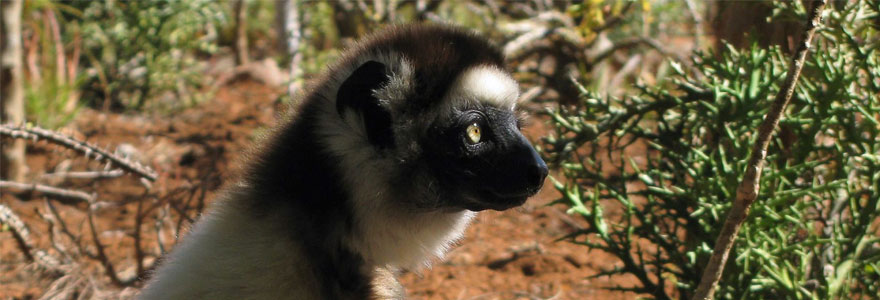News and Updates
Contact
Faculty of Social Science
Social Science Centre
Room 9438
Western University
T. 519-661-2053
F. 519-661-3868
E. social-science@uwo.ca
Climate change and deforestation may drive tree-dwelling primates to the ground
October 14, 2022
Verreaux's sifaka (Propithecus verreauxi), or the white sifaka, is a medium-sized primate in one of the lemur families. Photo by Tim Eppley
A large-scale study of 47 species of monkeys and lemurs has found that climate change and deforestation are driving these tree-dwelling animals to the ground, where they are at higher risk due to lack of preferred food and shelter and may experience more negative interaction with humans and domestic animals.
Published in the journal The Proceedings of the National Academy of Sciences (PNAS), the study examined more than 150,000 hours of observation data on 15 lemur species and 32 monkey species at 68 sites in the Americas and Madagascar. Led by Timothy Eppley, postdoctoral associate at San Diego Zoo Wildlife Alliance, the study was a remarkable worldwide collaboration between 118 co-authors from 124 unique institutions, including Western anthropology professor Ian Colquhoun.
“This study began with a discussion among colleagues about how we’d noticed certain populations of arboreal primates spending more time on the ground,” said Eppley, “yet at sites with relatively less disturbance, members of the same species may never descend to the ground.”
One of Canada’s leading primatologists, Colquhoun is an expert of biological anthropology and has studied lemurs in Northern Madagascar since the 1990s.

